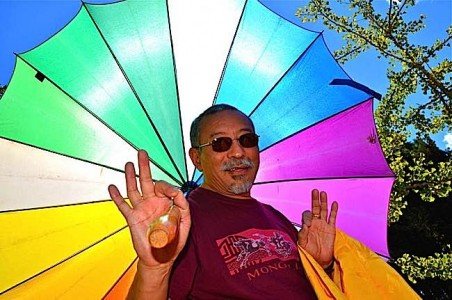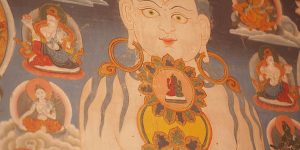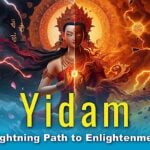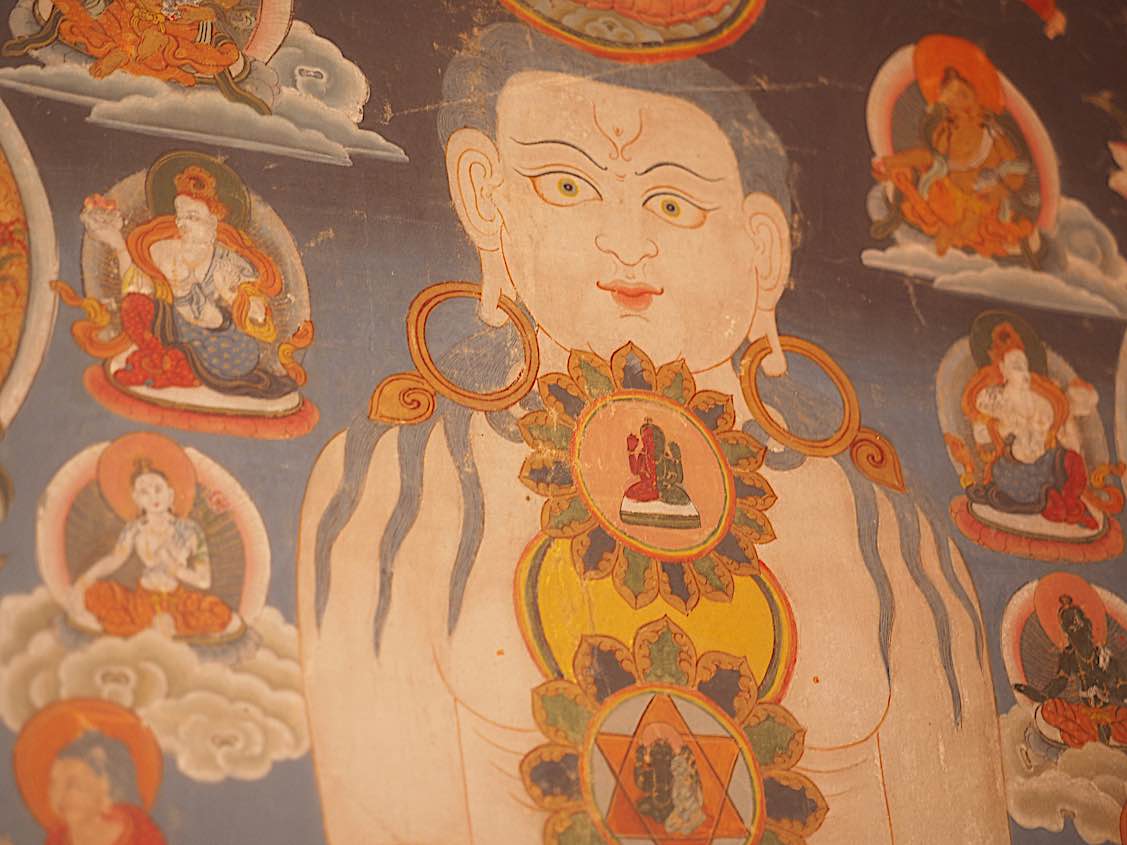Tibetan Buddhist views on LGBTQ: is Buddhism accepting, neutral, supportive, or alienating to lesbians, gay men and trans-gendered persons? What about same-sex marriage?
One of the most often asked questions in our “Ask the Teacher” submission form [link here>>] is “How does Tibetan Buddhism view same-sex issues?” or “Does Buddhism encourage same-sex marriage?” and many variations on this theme. The LGBTQ (or LGBT) topic is muddied by lack of uniformity in terms of the views of various Tibetan teachers, although it is generally positive amongst teachers in the West.
During a Buddha Weekly interview , our interview had a hard cut-off because H.E. Zasep Rinpoche — spiritual director of Gaden for the West — was about to perform a marriage of two women at Gaden Choling Toronto (in Canada same-sex marriage is legal):

Buddha Weekly: You’re performing a gay marriage today?
Zasep Rinpoche: Yes, a very lovely couple. I officiate many weddings, and often gay marriages… I would like every one to know I celebrate both gay and non gay marriages.
In other Buddhist sanghas, is the attitude accepting, neutral, supportive or alienating to gay men and women and trans-gendered persons? With gay marriage legal in many places, will your Buddhist teacher support and officiate at your marriage? The issue is confused by some earlier (1997) comments from the Dalai Lama, who appeared to be disapproving of gay sex; he later clarified he was refering to monastic sex (see below, and his clarification on the Larry King show.)
Buddhism all about self-development: its up to you
Generally, Buddhism, which is really focused on individual enlightenment and personal responsibility, is neutral on the topic, simply because it’s “up to us.” There is no “sin” in Buddhism, only wrong conduct — which does not include gay sex according to most teachers. The main reference in Sutra to sex is “sexual misconduct” which has nothing to do with sexual preference — only the way we treat our partner. Forceful sex, rape, adultery, and any non-voluntary conduct is sexual misconduct. If one is a monk or nun, one is expected to be celibate; gay, lesbian or trans-gender is irrelevant — the rule is no sex for monks and nuns.
“Your sexual orientation has nothing to do with understanding or not understanding the truth [Dharma].” — H.E. Dzongsar Khyentse Rinpoche
Dzongsar Khyentse Rinpoche on Homosexuality in Buddhism:
Sex is a lay activity, and has little to do with our spiritual progress, other than any issues with over-attachment. After all, Samsaric suffering arises from our attachment to pleasures — and sex could certainly be thought of as a pleasure. The third precept, refered to here, more-or-less reads (varies with translation):
I undertake the training to refrain from using sexual behavior in ways that are harmful to myself and to others. I will attempt to express my sexuality in ways that are beneficial and bring joy.
Dzongsar Khyentse Rinpoche explains: “Here, we have to be careful, because we mingle so much with culture and the situation… there is nothing in the [texts] about this… these things are created by the culturalists… some people like cottage cheese, and some people like swiss cheese, and some people like both! And why not?”
What do other teachers say?
We set out to discover what other teachers have to say on the topic — since the topic is requested so often. Overall, there is positive acceptance for lay Buddhists. Monastics, of course, refrain generally from sex, as their Vinaya (monastic rules) includes celibacy. Lay Buddhist do not have that concern. At worst, some there is an attitude of “its not important to the practice of Buddhism.” [Karma Kagyu Lama Ole Nydahi]
Reinforcing that, Dzogchen Ponlop Rinpoche (Karma Kagyu and Nyingma lineages) emphasized that, for lay practitioneres “homosexual relationships are no better or worse than heterosexual relationships” and emphasized only “unhealthy relationships” were to be avoided. [Heart to Heart, 2008 motion picture]
Certainly, there’s no sense of dissaproval. In monastic circles, sex itself is discouraged, but other than that, it is difficult to pin down any anti-LGBTQ attitudes, other than from a few individuals not representative of Tibetan Buddhism, or some cultural stigmas in the East.
Tibetan, Mahayana, Zen, and Theravadan Buddhist teachers are generally quite supportive of their LGBTG, as expressed by H.E. Zasep Rinpoche, who conducts legal gay weddings.
Zen priest Jana Drakka at a Gay Marriage Rally:
Dalai Lama
The Dalai Lama, in 2014, said to Larry King: “If two people – a couple – really feel that way is more practical, more sort of satisfaction, both sides fully agree, then okay.” Some confusion arose, when in 1997, at a press conference, the Dalai Lama appeared to say gay sex was a sexual misconduct — although some believe he was referrring to sex among monastics. He later seemed to correct that misconception, when he said,
“If the two people have taken no vows [of chastity] and neither is harmed why should it not be acceptable.”
Very early Tibetan texts (not Buddhist sutra) — generally from tradition or lineage masters — may have had conflicting prohibitions on oral or anal sex and masturbation (with a man or a woman), but this again was likely to disuade monastics from sex. If not, it was a cultural norm for the 12th and 13th centuries when you find these antiquated references. They do not reflect Tibetan Buddhism, generally, at least not in the 21st century, and certainly not in the West. In Asia, some Theravadan Buddhists discourage gay sex, or even include it as a sexual misconduct, but this is not universal, and it’s strongly influenced by the monastic culture. It is important to understand that Buddha’s own words do not in any way identify gay sex as a misconduct.
In Chinese Buddhism, the attitude has always been very open and accepting, with some specific conservative cultural exceptions, such as Chan Master Hsuan Hua, who spoke against homosexuality. More positively, the prominent Venerable Hsing Yun teaches acceptance for gay marriage:
“Marriage is an institution that reflects the values of the society that supports it. If the people of a society no longer believe that it is important to be married, then there is no reason why they cannot change the institution of marriage. Marriage is a custom. Customs can always be changed. We can find the same core point in this question as we have in others — the ultimate truth of the matter is that individuals can and should decide for themselves what is right.
“As long as they are not violating others or breaking the laws of the society in which they are living, then they are free to do what they believe is right. It is not for me or anyone else to tell them that they must get married if they want to live together. That is their choice and their choice alone.
“The same analysis can be applied to homosexuality. People often ask me what I think about homosexuality. They wonder, is it right, is it wrong? The answer is, it is neither right nor wrong. It is just something that people do. If people are not harming each other, their private lives are their own business; we should be tolerant of them and not reject them.” [ Buddhism Pure and Simple, p 137, Hsing Yun.]
Ajahn Bahm on gay marriage:
In Butan, attitudes are more or less “so what?” Lama Dzongsar Khyentse Rinpoche explained that sexual orientation is irrelevent to Buddhist practice.
The U.S. branches of Nichiren Buddhism are generally accepting and welcoming, as well.
Lay Buddhists
As indicated, Buddha himself did not have anything to say about gay sex. The precept on sexual misconduct was clarified as adultery and forced sex, specifically within the Anguttara Nikaya as:
“…one has intercourse with those under the protection of father, mother, brother, sister, relatives or clan, or of their religious community; or with those promised to someone else, protected by law, and even with those betrothed with a garland.”
More articles by this author

“Torches That Help Light My Path”: Thich Nhat Hanh’s Translation of the Sutra on the Eight Realizations of the Great Beings

Karma is Not Fate: Why Karma is Empowering. Why do bad things happen to good people? How can we escape the wheel of suffering?

“Mind Jewel” Green Tara – a Highest Yoga Tantra practice of Chittamani Tara (Cittamani), Mother of all the Buddhas
Search
Latest Features
Please support the "Spread the Dharma" mission as one of our heroic Dharma Supporting Members, or with a one-time donation.
Please Help Support the “Spread the Dharma” Mission!

Be a part of the noble mission as a supporting member or a patron, or a volunteer contributor of content.
The power of Dharma to help sentient beings, in part, lies in ensuring access to Buddha’s precious Dharma — the mission of Buddha Weekly. We can’t do it without you!
A non-profit association since 2007, Buddha Weekly published many feature articles, videos, and, podcasts. Please consider supporting the mission to preserve and “Spread the Dharma." Your support as either a patron or a supporting member helps defray the high costs of producing quality Dharma content. Thank you! Learn more here, or become one of our super karma heroes on Patreon.
Josephine Nolan
Author | Buddha Weekly
Josephine Nolan is an editor and contributing feature writer for several online publications, including EDI Weekly and Buddha Weekly.















